According to a recent report, the Standard & Poor’s Case-Shiller home price index showed a 12 percent increase in home prices in 20 cities from April 2012 to April 2013, the largest gain since early 2006, when home values began to level off in advance of the market collapse. The rate of new-home sales also picked up to its quickest pace since July 2008. The National Association of Realtors (NAR) reported in May of this year that pending home sales reached its highest level in over 6 years. The National Mortgage Professional recently announced a total of 255 metropolitan areas across 49 states and the District of Columbia qualified to be listed on the National Association of Home Builders/First American Improving Markets Index (IMI) for July, 2013. This is down slightly from the 263 metros that made the list in June, but is more than triple the number of metros that were on it in July of 2012. Brokers are experiencing improved conditions for the 2nd straight year and have reported a jump in their business activity and increased income levels. This is also good news for retailers like home improvement stores, appliance and furniture retailers, and other big ticket sellers that rely on the housing industry to boost their sales.
With the job market slowly in recovery, many are looking to take on a 2nd job or even make a career change where there is an incline in job growth. That in mind, taking a course in real estate and becoming a broker is a smart option. A strong desire to help people find decent, affordable housing along with good business skills and positive work ethics can help you go a long way in this line of work. As an independent broker, you grow your business as large as you like. There is always potential to expand your educational background with additional classes and certifications, thus allowing you to build your clientele and serve in diversified market areas from housing (resale and new home) to commercial/industrial sales. As a licensed broker, you will be recognized as a professional, and also as a contributor to economic improvement in your community. An Economic Impact of Real Estate Activity published in March, 2013 by NAR Research showed that when a home is sold in Illinois, there is a greater spending at restaurants, sports games, and charity events. Additional home sales induce additional home production. Typically one new home is constructed for every 8 existing home sales. Therefore, for each existing home sale, 1/8 of new home value is added to the economy.
Becoming a licensed broker in Illinois is a career choice you can be proud of while making a positive difference in your life and those in your community. For more information on licensing, or to upgrade your license status to a higher level, please contact us. We will be happy to answer your questions and assist you in locating classes in your area.
